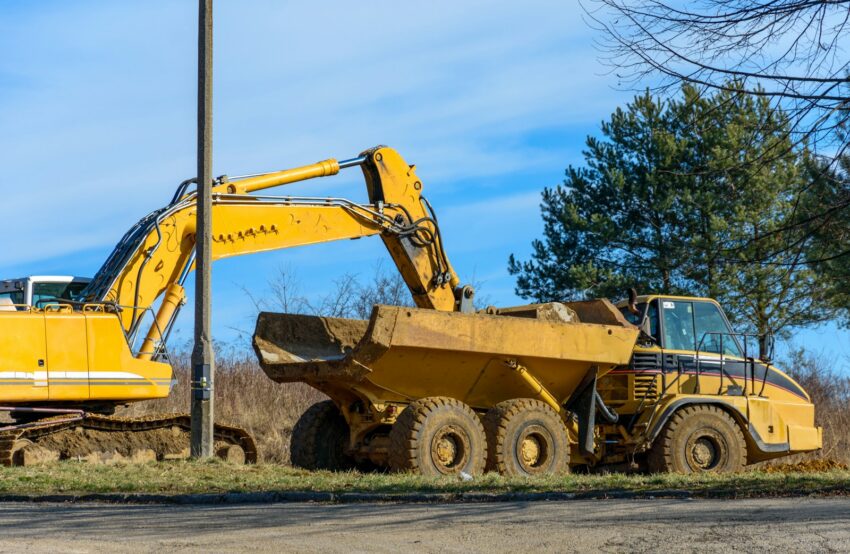Imagine getting all hyped up for your weekend project.
You’re running the dump trailer or lift, thinking about how proud you’ll feel once it’s all done. And then, out of nowhere, your equipment stops working. You hope it’s just a weird glitch, so you tap the controls again and, still, nothing’s happening.

Welp… There goes your productive Saturday. And now you feel a headache coming. The saddest (or the most frustrating, you decide) part is that this didn’t actually come out of nowhere. Hydraulic breakdowns don’t just happen like that, with no warning signs. But you chose to shrug off that tiny leak and that strange noise, so this is what you get.
Wanna see how to prevent this from happening again?
It doesn’t take much; you need to know how to recognize the signs.
Early Warning Signs
Hydraulic breakdowns build up little by little.
A small leak here, a weird sound there, maintenance you skip because you can’t get off the couch, and there you go. Honestly, how could your equipment not break down if you treat it like this?
Here’s how to know something’s off.
Slower or Uneven Movement
If you notice your lift (or arm) starting to move slower than it usually does, or perhaps it feels as if it’s hesitating midway through the motion, that’s a red flag. It (usually) means something’s wrong – you just don’t know what.
It could be air/debris in the hydraulic system, or it could be low oil levels, but it can also be something like a clogged filter or worn seal.
Regardless of what it is, it won’t fix itself, but rather it’ll get worse as time goes on. And eventually, it’ll result in a complete breakdown and a hefty repair bill.
Leaks Around Cylinders or Hoses
A few drops of hydraulic liquid aren’t a big deal, right?
Wrong. Even a tiny leak is bad news, and you need to see what’s causing it. Hydraulic systems work under intense pressure, and if any fluid escapes, it means the pressure is being lost. If you don’t check this, the leak could cause overheating or total equipment failure.
Spotting contamination isn’t hard, and yet it still manages to cause 70% of all failures.
Just look at the color or smell of the fluid; if the oil is dark or cloudy or if it smells like it’s burnt, something is breaking down inside the system.
Weird Noises During Operation
Whining, knocking, rattling, none of this is normal.
Air could be trapped in the lines, or the pump might be wearing out. Listen carefully when the system is idle or lifting – if you hear knocking or chattering, that often means cavitation (air bubbles collapsing inside the cylinder).
This is a small detail, but it could save you from a breakdown.
Sticky or Jerky Cylinder Action
If your pistons or arms aren’t gliding smoothly, something inside the cylinder is wrong.
It could be lubrication, or it could be that the internal seals are wearing thin. Either way, the uneven motion won’t just slow you down; it’ll put extra stress on the joints. That could cause dangerous, sudden shifts in weight.
You’ll want professional assessment and resealing for this, so look into businesses that specialize in parts, tools, and machines, like Jonestown AG cylinder repair, but make sure they offer hydraulic cylinder repair.
Both from a business and from a logical standpoint, it makes sense to take care of the issue before you do some real damage.
Overheating ot Unusual Vibrations
Hydraulic systems are built to handle pressure, not heat, so if your equipment feels hot to the touch, the fluid is either overworked or contaminated. You might also notice strange vibrations while operating, and those might be caused by misaligned components or low internal pressure.
Both are big issues because they make the equipment less precise and less efficient over time.
If you ignore this, you risk pushing the system past the point of repair.
Preventive Maintenance
Hydraulic systems slowly wear down when you say to yourself that you’ll check fluid levels later and that you’ll tighten the fittings the next time you use them. But if you don’t take care of your equipment regularly, it will break down much sooner than it would otherwise.
Before every use, run a quick check.
See if there are damp spots on the hoses or if the fittings are loose. And when you’re done working, store it properly. That means, covered, with exposed metal being protected, and away from moisture and dust. If you leave it out, you risk rust and sticky pistons, and you don’t want that.
Always use the machine within its rated limits because pushing it too hard can not only wear it out faster, but it can also make it dangerous.
And even when everything seems fine, schedule professional servicing every once in a while.
Conclusion
The good news is that hydraulic equipment gives you plenty of warnings before it breaks down. The bad news is that people usually don’t pay attention.
But if you take 10 minutes to inspect your setup and schedule a quick service here and there, you won’t have to worry about unexpected shutdowns and fluid leaks.
